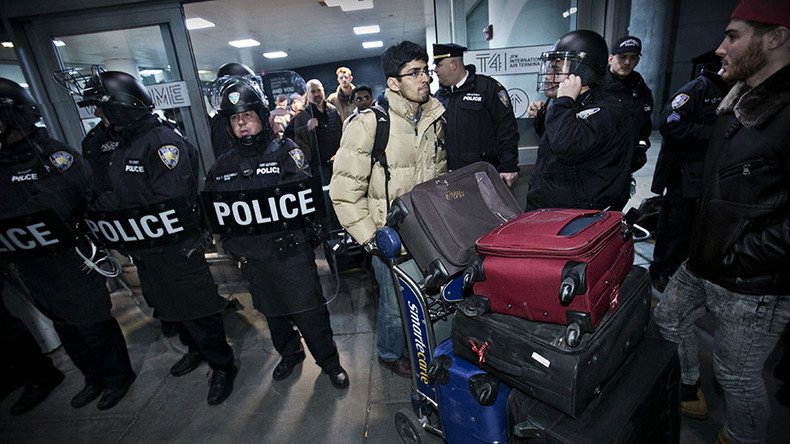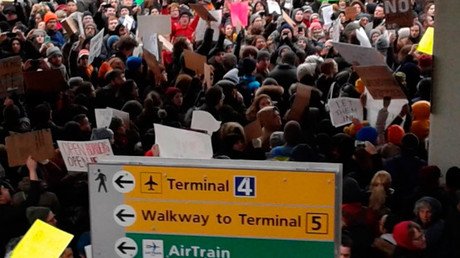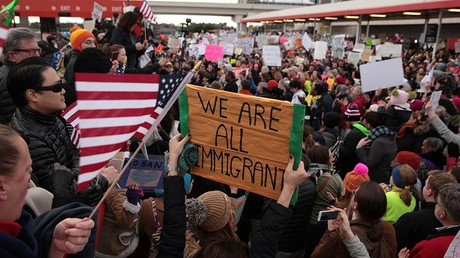‘Vast majority of Muslims’ have access to US – Homeland Security head defends Trump's order

Homeland Security Secretary John Kelly has spoken out about President Donald Trump’s executive order on banning people from seven countries from entering the US for 90 days. He promised it was “not a Muslim ban” and that it would protect the country.
Kevin McAleenan, the acting commissioner of US Customs and Border Patrol (CBP), also discussed how his agency had enforced the order.
Kelly promised that the writing and implementation of the executive order was not as piecemeal as had been reported, and that the Department of Homeland Security (DHS) had not, in fact, been blindsided by its enactment.
“This whole approach was part of what then-candidate Trump talked about for a year or two,” Kelly said. “So we knew it was coming. It wasn’t a surprise it was coming. And then we implemented it.”
Staff at DHS “were generally involved” with writing the order, and Kelly said he looked at two drafts before the wording was finalized, but he “didn't get involved in correcting grammar or reformatting the thing."
The 109 number also did not include those people with approved visas or legal permanent residents (meaning people holding green cards) who were prevented from even boarding planes from coming to the US.
About 90,000 people from the seven countries received non-immigrant or immigrant visas in 2015, according to State Department statistics. If those visa holders are in the US, they will not be able to leave for 90 days under the Trump ban, while those outside of the US will not be able to return.
The executive order will allow DHS and other agencies to analyze the visa process and is “strongly supported by the department's career intelligence officials,” Kelly said. It will allow the country to be proactive, rather than reactive.
"We cannot gamble with American lives. I will not gamble with American lives," Kelly said. "These orders are a matter of national security. It is my sworn responsibility as secretary of homeland security to protect and defend the American people.
"And I have directed departmental leadership to implement the president's executive orders professionally, humanely, and in accordance with the law," he added.
The seven countries were selected because they lack the kinds of records-keeping procedures “that can convince us that one of their citizens is, indeed, who that citizen says they are and what their background might be,” Kelly said.
At the end of the procedural review, the US may decide to request additional information from visa applicants, including social media profiles and websites visited. Such requests were implemented in December by the Obama administration.
The executive order’s language and implementation caused much confusion over the weekend, including when DHS officials were reportedly told not to enforce a court-issued stay against the new policy. Kelly denied that employees were obstructing justice, saying that DHS “would not ignore a court order.” As far as he was aware, he added, no CBP official “knowingly” violated the ruling.
However, he has asked for more information on such reports.
During the first 72 hours of the order, 721 people holding visas from the affected countries were prevented from entering the US, while 1,061 people were granted waivers and allowed entry, McAleenan said. About half a million foreign nationals entered the US during that same time span.














